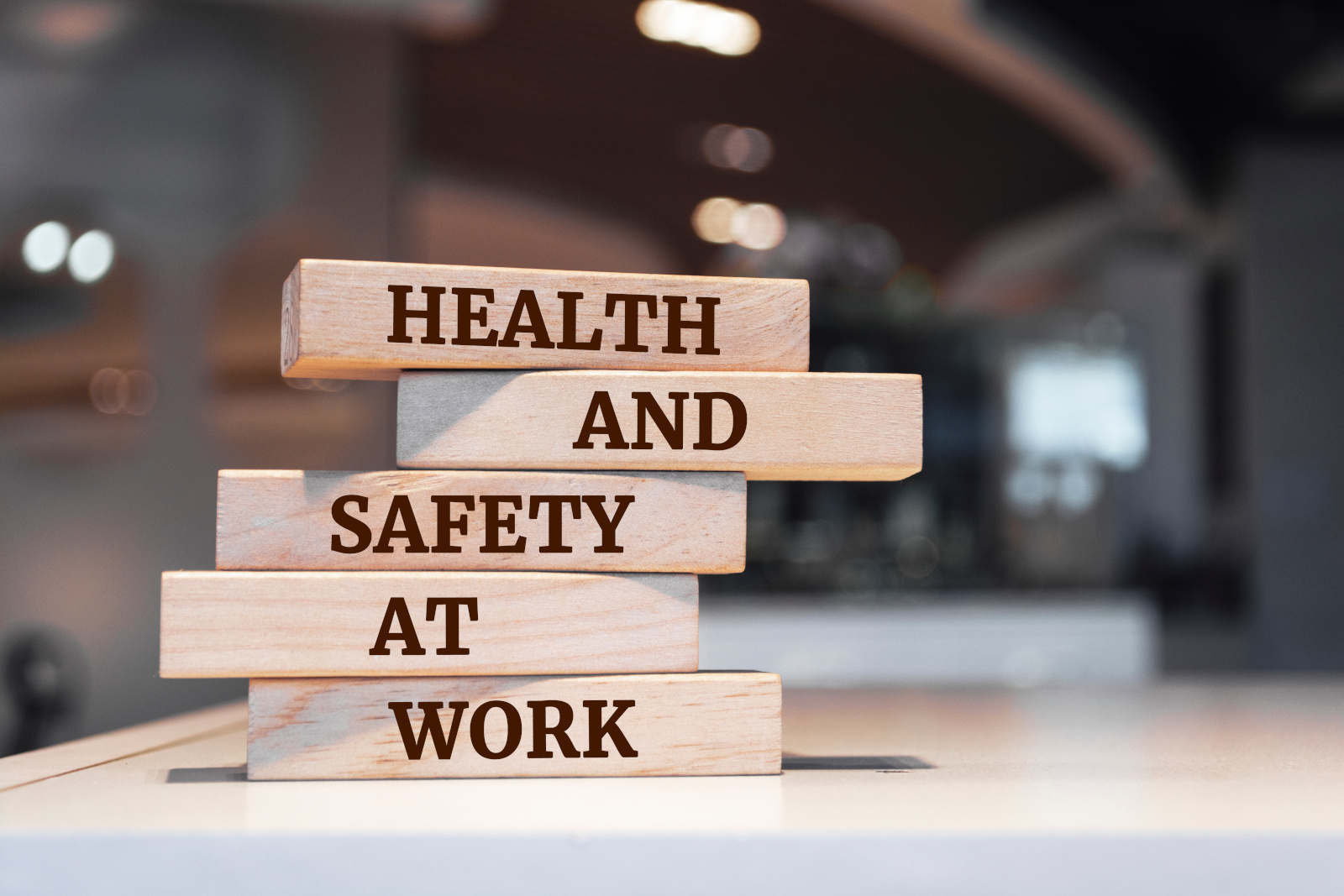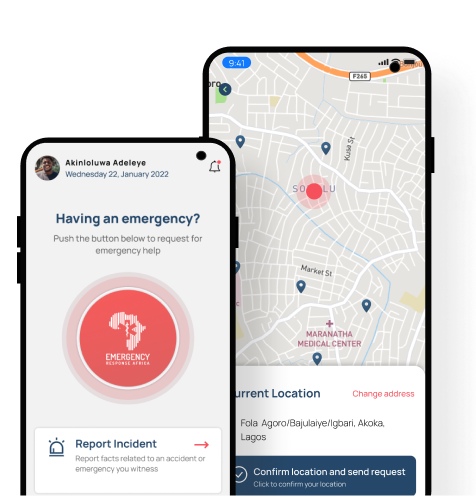Preventing accidents and ill health caused by work is a crucial priority for everyone. As the owner or manager of a business, you know that competent employees are valuable. Hence, knowing about Health and safety training in Lagos is important to employers.
What is Health and Safety Training
Health and safety training is an educational process that imparts knowledge, skills, and awareness, enabling workers to effectively protect themselves from hazards and promote a safe working environment.
Who Needs Health and Safety Training
1. You
Self-employed individuals must identify the hazards and ways to control the risk of an emergency getting out of control. Health and safety training educates individuals on health and safety protocols and authorities to contact in an emergency. Health and Safety training makes you better employable as an employee.
2. Managers and supervisors
Managers and supervisors need to understand health and safety policy, where it fits in, and how they want it to be applied; they also need to know what to expect from their employees in terms of health and safety and how they expect them to deliver. They may also need training in the specific hazards, the processes of handling them, and how you expect to control the risks.
3. Employees
Everyone working for you, including self-employed people, must know how to work safely and without health risks. Like your supervisors, they need to know about your health and safety policy, your implementation arrangements, and the part they play. They also need to know how to raise your health and safety concerns.
RELATED SERVICES:
What is Workplace Safety
Workplace safety is a shared responsibility between employers and workers. Regardless of the workplace or business size, health and safety should be a top priority for all. Workplace safety initiatives include
- Managing the condition of the workplace,
- Managing injuries and
- Reducing or eliminating risks and hazards.
The importance of health and safety education and training
Here are five reasons why health and safety training are key for any business:
1. It’s the Law of the state
Health and safety training isn’t optional – it’s the law. The legislation mandates that employers and employees take reasonable and practical measures to uphold health and safety standards within the workplace.
Non-compliance with health and safety laws and regulations can severely affect businesses. The fines associated with violations in this domain consistently increase yearly, reflecting governments’ unwavering commitment to zero tolerance for disregarding health and safety legislation.
2. Risks can be found in any workplace
Hazards are inherent across work environments, ranging from bustling construction sites to quiet offices. These elements pose significant risks to workplace safety, underscoring the importance of employee awareness. Maintaining a proactive approach to health and safety is paramount, and every employer or employee should avoid complacency. Prioritising health and safety must be an ongoing process that enables employers to consistently identify, monitor, and mitigate risks associated with the workplace.
3. Efficiencies in the workplace
Many may consider health and safety time-consuming and tedious, but nothing could be further from accurate. Embracing health and safety measures can significantly enhance business efficiency and productivity. A secure workplace ensures workers can perform their duties without concerns about unsafe conditions. It fosters an environment where they can stay focused, ultimately contributing to the business’s overall productivity.
4. Cost minimization across the board
Enhancing operational clarity not only boosts productivity but also aids businesses in minimising unnecessary indirect expenses. Workplace accidents resulting in injuries or illnesses can adversely impact operations by causing the loss of valuable workers.
Beyond the immediate challenges of managing such incidents and finding replacements, businesses also forfeit the knowledge, skills, and experience the affected worker brought to their job. Robust health and safety procedures decrease the likelihood of workers taking leave due to injuries or illnesses, reducing the risk of prolonged disruptions to ongoing projects and the potential loss of highly skilled personnel.
Committing to health and safety training can also help businesses avoid significant fines for health and safety regulations breaches.
5. Positive safety culture
A strong health and safety policy can help build a good relationship with workers. When workers perceive their workplace as safe and recognise the value placed on their well-being, it diminishes the likelihood of turnover and enhances overall job satisfaction. A positive environment influences morale and contributes to heightened productivity.
A business’s values and principles are checked for when a recruit wants to join any organisation, and its commitment to health and safety is a noteworthy indication of its social responsibility and awareness in the eyes of the online community.
RELATED READING:

Top 5 Health and Safety Training in Lagos
1. Workplace Health and Safety Training by ERA
Emergency Response Africa (ERA) training for corporate organizations offers tailored programs to enhance workplace safety and preparedness. It is delivered either on-site or virtually. ERA’s courses equip employees with vital skills to handle emergencies effectively.
Upon completing this program, you will receive two certifications: one from Emergency Response Africa and one from our international partners, AHA or NHCPS. The certificate is recognized in the US, Canada, the UK, and over 180 countries.
The courses are designed for beginners. You don’t need prior knowledge of first aid or healthcare to enrol. Integrating practical training with real-life scenarios ensures your team is ready to respond swiftly and confidently, promoting a safer and more secure work environment.
2. HSEtrain Int’l Ltd general and advanced HSE (levels 1,2,3)
OSHA Standard HSE 1,2 & 3 Course This course is for individuals and corporate organizations wanting comprehensive general and advanced HSE training. The course meets statutory requirements for staff and contractors’ occupational health, safety, and environment training. The course syllabus, as designed by the National Industrial Safety Council of Nigeria (NISCN), is extensive and is delivered by expert instructors with years of experience in the industry.
3. Novelle Center HSE training
They provide Health and safety management, ISO, and quality and project management courses. With strategic partnerships, they offer ISO audit services, guiding organizations towards achieving certifications in quality and health and safety management, along with various other management standards.
4. Piston & Fusion Health and Safety Management
The health and safety course provides awareness of essential health and safety issues. It allows participants to understand the role everyone plays in ensuring a safe working environment. Our course covers the entire framework for staying healthy and safe at work.
At the end of the course is an assessment, and upon completion, a certificate is awarded by the Chartered Institute for Environmental Health, UK (CIEH). Safety and Health Law, Workplace and work equipment, and Risk assessment are some of the grounds covered.
5. The Lagos State Safety Commission Training
The Lagos State Safety Commission is responsible for coordinating all Government matters relating to the safety of the lives and property of Lagosians. The Commission is empowered to formulate policies, provide advisory services, and regulate safety-related issues.
They are also involved in organizing specialized Safety and Health training for both public and private organizations.
Best Practices for health and safety training
- Safeguarding employees’ health and safety will be possible if the company or organization ensures updates on the latest best practices, particularly in training.
- The training should be customized to meet the needs of the industry and solve unique risks. HR, as the custodian of these processes, must ensure a thorough assessment to craft a custom curriculum that genuinely addresses the sector’s risks.
- Employee involvement during the planning, development, and evaluation will ensure the organization successfully achieves its training program objectives.
- Updating the course is key because new risks are emerging, policies from the government are possible, or internal policy shifts and workers must be prepared to adapt to these changes.
- Progress is possible when organizations can measure the success of their initiatives. Evaluation can be done through assessments (e.g., quizzes and return demonstrations), surveys, and feedback sessions.
Emergency Response Africa (ERA)
Employees should know how to effectively respond to emergencies, whether that is a medical incident involving a workmate or unforeseen disasters. Acting swiftly and appropriately saves lives and minimizes damages. ERA works with HR managers to ensure that all employees in the workplace follow the training curriculum.




